When it comes to tackling DIY projects, professional repairs, or even simple household tasks, the quality of your tools can make all the difference. Choosing the right hand tool brand is essential for efficiency, durability, and precision, whether you’re a seasoned craftsman or a weekend hobbyist. But with so many brands out there, how do you know which ones truly deliver? This article breaks down the best hand tool brands on the market, shedding light on their standout features, reliability, and value. From trusted industry leaders to rising innovators, we’ll guide you in finding tools that match your needs and elevate your craftsmanship. Click here to read more
What Are the Top Hand Tool Brands Available?
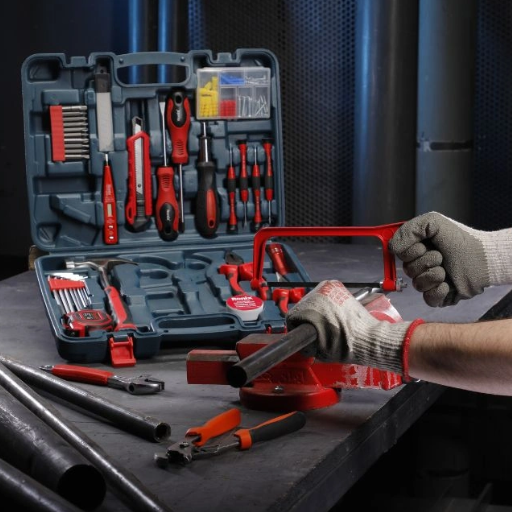
- DeWalt – Known for its durability and high-performance tools, DeWalt is a trusted name for professionals and DIY enthusiasts alike. Their tools are engineered for reliability under tough conditions.
- Stanley – A classic brand with a long history, Stanley offers dependable and affordable hand tools, making them a go-to for both beginners and experienced users.
- Bosch – Renowned for precision and innovation, Bosch provides hand tools that are crafted with cutting-edge technology and superior ergonomics.
- Craftsman – A household favorite, Craftsman combines quality and value, offering a lifetime warranty on many of its tools.
- Wiha – This German brand is celebrated for its precision-engineered tools, perfect for intricate work and long-lasting performance.
Why Choose Klein Tools for Your Needs?
Klein Tools stands out as one of the most trusted names in the industry, offering tools specifically designed for professionals, particularly electricians, linemen, and tradespeople. With over 165 years of history, the brand is synonymous with durability, innovation, and performance. Klein Tools uses high-quality materials like drop-forged steel and precision machining to ensure their products withstand rigorous use and deliver reliable results. Many users appreciate the ergonomic designs that reduce fatigue during extended tasks, along with features tailored to the demands of specialized work. Additionally, Klein Tools continues to innovate with modern advancements, such as insulated tools for safety and multi-functional designs, making them a go-to choice for both industry veterans and up-and-coming professionals.
Exploring Craftsman: A Reliable Tool Brand
Craftsman has long been synonymous with durability and dependability in the tool industry. Founded in 1927, the brand quickly gained recognition for its commitment to high-quality manufacturing standards. Craftsman tools are widely celebrated for their lifetime warranty, which reflects the brand’s confidence in their products’ longevity and performance. Designed to cater to a broad range of users, from homeowners to professionals, Craftsman offers an extensive product line, including hand tools, power tools, storage solutions, and outdoor equipment.
A highlight of Craftsman tools is their balance of affordability and quality, making the brand a popular choice for those seeking reliable equipment without breaking the bank. Over the years, Craftsman has embraced innovation, releasing cordless power tools with enhanced battery performance and ergonomic features that prioritize user comfort. Furthermore, the brand remains committed to accessibility, with tools available at major retailers and an expanding presence in homes and workshops alike. Craftsman continues to uphold its legacy as a trusted name in the industry, combining tradition, innovation, and practicality to meet the evolving needs of its loyal customer base.
Are Snap-on Tools Worth the Investment?
Snap-on Tools are often regarded as a premium choice in the tool industry, praised for their exceptional quality, durability, and precision. Crafted with professional-grade materials, these tools are built to withstand heavy use, making them a favorite among automotive technicians, mechanics, and other industry professionals. Snap-on’s extensive warranty program and excellent customer service are additional factors that justify their higher price point for many users.
However, whether Snap-on Tools are worth the investment largely depends on your needs and budget. For professionals who rely on tools daily and require high performance and reliability, the upfront cost may pay off in the long run due to their long lifespan and efficiency. On the other hand, casual DIYers or those with smaller budgets may find more affordable brands that still deliver acceptable performance for occasional use. Ultimately, Snap-on Tools are an investment in both quality and professional-grade performance, best suited for individuals who prioritize precision and durability in their work.
How to Select the Best Hand Tool for the Job?
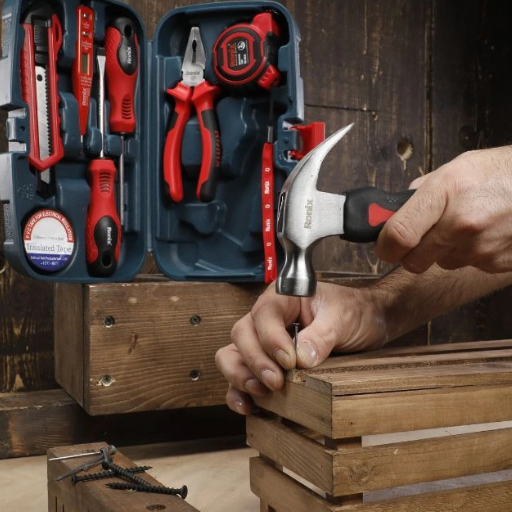
When selecting the best hand tool for the job, consider the following key factors:
- Purpose – Determine the specific task you need the tool for and choose one designed to perform that function effectively. For example, use a wrench for tightening bolts or a screwdriver for driving screws.
- Quality – Opt for tools made from durable materials such as high-grade steel to ensure longevity and reliability during use.
- Comfort – Look for ergonomic designs with comfortable grips to reduce strain during prolonged use and improve precision.
- Size and Fit – Select a tool of the appropriate size to match the task, ensuring it provides the right level of control and effectiveness.
- Brand Reputation – Choose tools from reputable manufacturers known for producing reliable and high-performance products.
Understanding the Role of Wrench and Socket Tools
Wrench and socket tools are essential components in any toolkit, offering versatility and precision for a variety of fastening tasks. A wrench, commonly used for gripping and turning objects like nuts and bolts, provides efficient torque application and control. Different types of wrenches, such as adjustable, open-end, and combination wrenches, are suited for specific tasks, making them indispensable in plumbing, automotive, and construction work.
Socket tools, on the other hand, excel in situations requiring efficient tightening or loosening of fasteners in confined spaces. A socket wrench, often paired with interchangeable sockets, allows users to tackle various bolt sizes without needing numerous separate tools. These tools are particularly effective for automotive repairs and assembling machinery. Together, wrenches and socket tools ensure precision, ease of use, and adaptability across a wide range of tasks, making them fundamental for both professionals and DIY enthusiasts.
Comparing Screwdriver Types: Screwdriver Set Essentials
Screwdrivers are indispensable tools, each type designed for specific tasks and screw designs. The most common types include flathead, Phillips, Torx, and hex screwdrivers, each catering to distinct screw heads. Flathead screwdrivers have a simple, straight blade ideal for slotted screws, while Phillips screwdrivers feature a cross-shaped tip, providing greater torque and reducing slippage during use. Torx screwdrivers, with their star-shaped design, are often used in electronics and automotive assembly due to their precision and grip. For hex screws, hex screwdrivers or Allen wrenches are a go-to choice, well-suited for tightening or loosening hexagonal bolts.
A well-rounded screwdriver set typically includes these common types in various sizes, ensuring versatility for a wide range of tasks, from assembling furniture to intricate electronics repair. Additionally, sets with magnetic tips enhance ease of use by stabilizing screws during operation, while ergonomic handles reduce hand fatigue for lengthy projects. Opting for high-quality, durable materials, such as chrome-vanadium steel, ensures long-term performance and resistance to wear. A comprehensive screwdriver set is an investment that equips users with the flexibility and efficiency needed for both professional and personal projects.
The Importance of Durability in Tool Selection
Durability is a critical factor when selecting tools, as it directly impacts performance, safety, and long-term value. High-quality tools crafted from robust materials like hardened steel or chrome-vanadium alloys are designed to withstand consistent use and harsh conditions, ensuring reliability over time. Investing in durable tools reduces the frequency of replacements, saving money in the long run while minimizing downtime on important tasks. Additionally, well-constructed tools are less likely to break under pressure, enhancing user safety during operation. Ultimately, prioritizing durability in tool selection ensures efficiency, longevity, and peace of mind for both professionals and DIY enthusiasts alike.
What Should Be Included in a Tool Set?
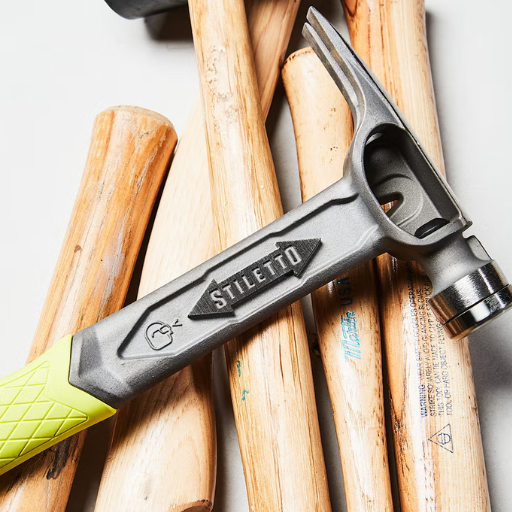
- Screwdrivers: A variety of flathead and Phillips screwdrivers to suit different screw sizes.
- Hammer: A claw hammer for driving nails and removing them.
- Pliers: Both needle-nose and standard pliers for gripping, bending, and cutting wires or materials.
- Wrenches: Adjustable wrenches to fit bolts and nuts of varying sizes.
- Measuring Tape: A sturdy tape measure for accurate measurements.
- Utility Knife: For cutting materials like cardboard, plastic, or string.
- Socket Set: Includes various sizes of sockets for working with bolts.
- Allen Keys (Hex Keys): Useful for assembling furniture or equipment requiring hex fasteners.
- Level: To ensure surfaces are perfectly horizontal or vertical.
- Hardware Assortment: Includes nails, screws, and wall anchors for basic repair tasks.
Essential Hand Tools for Every Tool Box
To complement your core hand tools and further enhance the functionality of your toolbox, consider including the following essential items:
- Tape Measure: An indispensable tool for accurate measurements during construction, furniture assembly, or DIY projects. Opt for one with a lockable blade for easier handling.
- Utility Knife (Box Cutter): Ideal for cutting through a variety of materials, such as cardboard, plastic, or rope. Choose one with a retractable blade for safety.
- Adjustable Wrench (Crescent Wrench): A versatile tool for loosening or tightening bolts and nuts of various sizes, perfect for plumbing or mechanical tasks.
- Pliers (Slip-Joint or Needle-Nose): Useful for gripping, bending, or cutting wires and small objects, making them essential for electrical work or crafting.
- Hammer (Claw Hammer): Not just for driving nails, but also for removing them with the claw-back feature, a must-have for general repairs.
Building a Complete Tool Kit for Home and Professional Use
When assembling a comprehensive tool kit, it’s essential to cover a variety of tools tailored to both home tasks and professional projects. Here’s a concise guide to help you build an effective tool kit:
- Basic Hand Tools:
- Hammer: A standard claw hammer is indispensable for driving nails and minor demolition tasks.
- Screwdrivers: Include both flathead and Phillips head options to handle different screw types.
- Pliers: Choose adjustable pliers, needle-nose pliers, and locking pliers for gripping, twisting, and securing objects.
- Adjustable Wrench: Perfect for tightening or loosening nuts and bolts of varying sizes.
- Utility Knife: Ensures precise cutting for materials like cardboard, rope, or drywall.
- Measuring and Marking Tools:
- Tape Measure: A versatile tool for precise measurements in both metric and imperial units.
- Level: Opt for a durable bubble level or digital level to ensure accurate alignment during installation tasks.
- Speed Square: Ideal for making quick, straight cuts or measuring angles on various surfaces.
- Power Tools:
- Cordless Drill: A must-have for drilling and driving screws with greater efficiency.
- Circular Saw: Excellent for cutting timber, plywood, and other materials.
- Jigsaw: Designed for more intricate or curved cuts, adding precision to projects.
- Angle Grinder: Versatile for cutting, grinding, or polishing various materials.
- Safety Equipment:
- Gloves: Protect your hands while handling sharp or heavy materials.
- Safety Glasses: Shield your eyes from debris during cutting, hammering, or drilling.
- Hearing Protection: Essential when operating loud tools such as saws or grinders.
- Storage Solutions:
- Invest in a sturdy tool box or rolling cabinet to keep tools organized and easy to access. For professionals, modular tool storage systems can provide flexibility and convenience on large projects.
How Do Top Hand Tool Brands Compare?
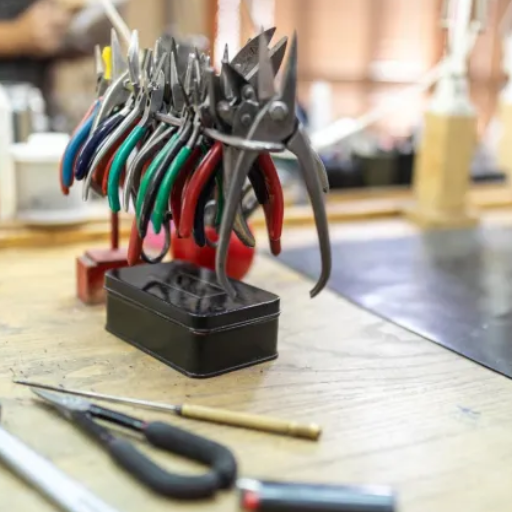
Leading hand tool brands are distinguished by several key factors, including quality, durability, and reliability. Brands like DeWalt and Milwaukee are widely recognized for their professional-grade tools that prioritize performance and longevity. Stanley is a trusted choice for versatile, budget-friendly options that suit both DIY enthusiasts and professionals. Klein Tools stands out for its specialized products, especially among electricians and tradespeople. Craftsman is noted for its broad range of tools with lifetime warranties, making it a favorite for long-term use. Ultimately, the best brand depends on the specific needs of the user, from heavy-duty construction tasks to everyday home improvements.
The Best Bang for the Buck: Evaluating Value
When it comes to getting the best bang for the buck, I focus on balancing quality and cost. For occasional use, I find that brands like Stanley and Craftsman offer excellent value—they’re affordable yet durable enough for most DIY projects. However, for more demanding tasks, I might invest in mid-range options such as Husky or Kobalt, especially since their lifetime warranties add long-term reliability. It really comes down to assessing how frequently I’ll use the tools and the level of performance I need for my projects.
Differences in Quality Tools: German Hand Tool Manufacturers vs. Others
When comparing German hand tool manufacturers to others, I’ve noticed a stark difference in precision and craftsmanship. Brands like Wiha, Wera, and Knipex emphasize ergonomic designs, superior materials, and meticulous engineering, which often result in tools that outlast and outperform many competitors. While these tools come at a premium price, they deliver unmatched reliability, especially for professionals or those requiring extreme precision. On the other hand, more generic or mass-produced tools might be adequate for casual use but often lack the longevity and refined functionality that German brands consistently provide.
Why Are Hand Tool Manufacturers Important?
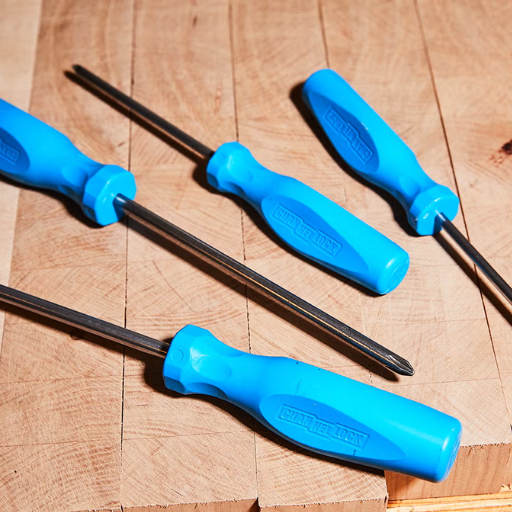
Hand tool manufacturers play a critical role in ensuring the availability of reliable, high-quality tools for a variety of tasks. They design and produce tools that support professionals and hobbyists in performing their work accurately and efficiently. By focusing on durability, safety, and ergonomics, these manufacturers help reduce workplace accidents and enhance productivity. Additionally, they drive innovation by introducing tools that meet evolving needs, ensuring users can tackle modern challenges with confidence.
The Role of Hand Tool Companies in the Industry
Hand tool companies play a critical role in supporting numerous industries through the development of reliable, efficient, and user-centric tools. These companies not only supply essential equipment for sectors like construction, manufacturing, and maintenance but also enable progress within these fields by prioritizing technological advancements. By integrating innovative designs and materials, they ensure tools remain durable and adaptable to evolving workplace demands. Furthermore, hand tool companies contribute to workforce efficiency by producing ergonomic solutions that enhance comfort and reduce strain, while maintaining rigorous safety standards to minimize accidents. Their success is rooted in a steadfast commitment to quality, precision, and the continuous improvement of their products.
How Tool Manufacturers Influence Innovation and Design
Tool manufacturers play a critical role in driving innovation and advancing design by staying attuned to industry needs and incorporating cutting-edge technology into their products. They invest heavily in research and development to engineer tools that are not only more efficient and durable but also adaptable to modern challenges. By collaborating with professionals across various sectors, these manufacturers gain valuable insights that inform the creation of specialized tools tailored to unique applications. Additionally, the integration of smart technologies, such as sensors and IoT capabilities, enables real-time data collection and analysis, enhancing precision and productivity. The efforts of tool manufacturers set benchmarks for quality and innovation, ultimately shaping how industries evolve and adapt to a dynamic market.
Frequently Asked Questions (FAQs)
Q: What are the best hand tool brands on the market?
A: Some of the best hand tool brands on the market include Stanley Black & Decker, a German company like Bosch, and others that are known for producing high-quality hand tools. These brands offer a wide range of hand tools, from cutting tools to fastening tools, ensuring you have the right tool for every job.
Q: How do I choose the right hand tools?
A: When choosing hand tools, consider the type of project you will be working on and the particular tool needed. Look for brands that are known for high-quality tools and have a good reputation in the hand tool industry. Ensure the tools include screwdrivers, ratchets, and measuring tools, and check whether they offer both SAE and metric options.
Q: What types of hand tools should every tool collection include?
A: Every tool collection should include a variety of hand tools such as pliers, wire cutters, screwdrivers, a ratchet set, and measuring tools. These tools are essential for most home and professional projects, providing flexibility and efficiency in a wide range of tasks.
Q: Why is Stanley Black & Decker considered one of the best brands?
A: Stanley Black & Decker is considered one of the best brands because they have been producing high-quality hand tools for many years. They offer a wide range of hand tools that are durable, reliable, and suitable for both professionals and DIY enthusiasts.
Q: Are there any specific brands for woodworking tools?
A: Yes, brands like Bosch and Dewalt are highly recommended for woodworking tools. These companies offer a wide range of power tools and hand tools specifically designed for woodworking, ensuring precision and quality in every project.
Q: Can I find high-quality hand tools at Home Depot?
A: Yes, Home Depot offers a variety of hand tools from different brands known for their quality and durability. You can find everything from basic hand tools to more specialized cutting and measuring tools in their selection.
Q: What should I consider when buying used tools?
A: When buying used tools, check the condition of the tools and ensure they are still functional and safe to use. It’s also important to ensure the brand of hand tools is reputable, as this often guarantees better longevity and performance.
Q: How do air tools differ from traditional hand tools?
A: Air tools, also known as pneumatic tools, use compressed air to operate and are typically more powerful than traditional hand tools. They are often used in professional settings where high efficiency and power are required, offering a different tool experience compared to manual options.
Q: What are some benefits of using high-quality tools?
A: High-quality tools offer better durability, precision, and reliability. They are often more comfortable to use, reducing fatigue during long projects, and they provide better results, making them a great investment for both professionals and hobbyists who want the best tools on the market.
Q: Why is it important to have both SAE and metric tools?
A: Having both SAE and metric tools is important because different projects and machinery may require different measurement systems. This ensures you are prepared for any task, whether it involves American or international standards, providing versatility in your tool collection.